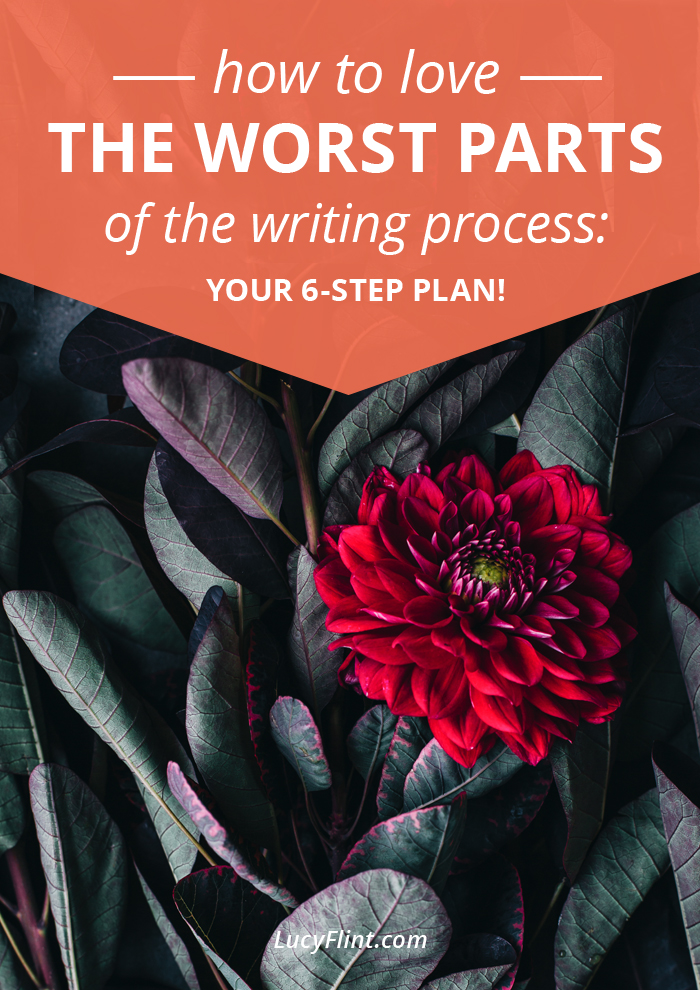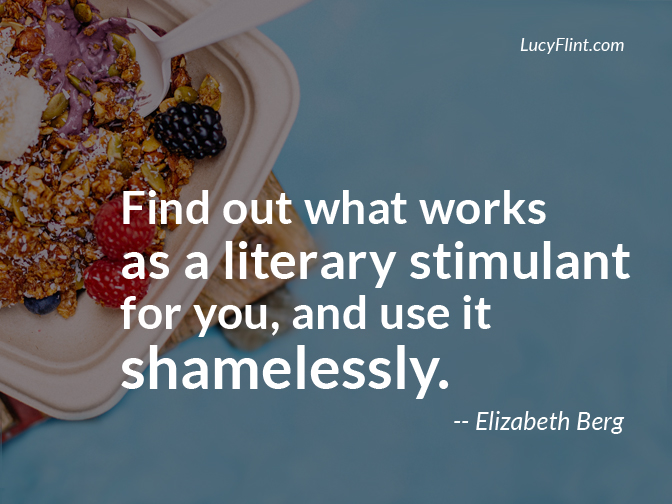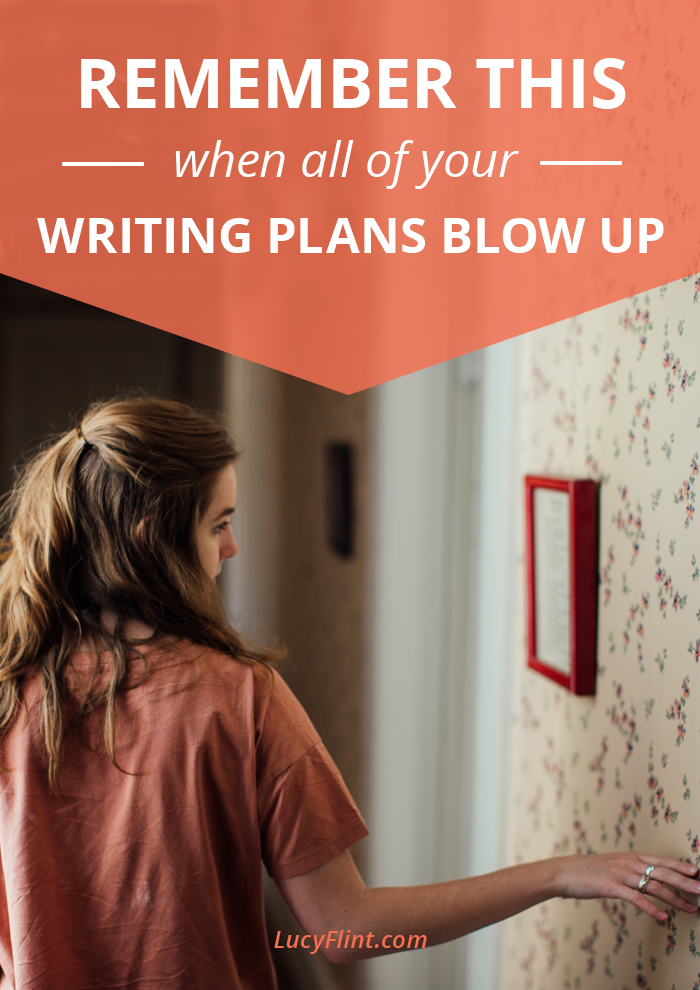How To Love the Worst Parts of the Writing Process: Your Six-Step Plan!
/We're halfway through our Anatomy of a Lionheart series! I'm loving this review of all the traits that go into making us amazingly courageous and happy writers.
The kind of writers that can stay the course.
But also the kind of writers who actually love what they do.
Which is why today it's time to come out and say it:
The lionhearted writer brings love into the process.
Parts of the writing life are totally easy to love, right?
Some bits are just intoxicating.
Books, words, stories.
Sentences so good they make your scalp tingle.
Mmmm. Yeah.
And then you adore your own stories, which feels incredible.
You fall in love with your characters. You love moments in the story that make you want to cheer because, somehow, you nailed them.
Am I right? (Yup, I just heard a "Heck yes!")
So it's pretty easy for me to say that a lionhearted writer has love somewhere in her. Love for this whole writing world.
You know what is one of the most powerful places for us to apply that love?
To the actual creative process itself.
You heard right. The nitty gritty. The day in/day out.
... If you're like me, you might have this slight reaction to that statement. "Oh. Love the creative process. Right. That."
Because, um, the creative process can be a bit ... difficult.
There's a flash of inspiration, or there isn't.
Sometimes you have an idea that lights you on fire and all you do is burn it onto the page.
And sometimes you feel like you're just nosing at something cold and dead and maybe there's something better to be doing with your time?
Exhilarating days, days that are just fine, and days that feel like you're at the dentist with anxiety through the roof and a slow numbing sensation.
There are the highs in the midst of the work, and then there are the long tedious slogs.
Right?
So what happens to us when we learn to love every bit of the process?
For starters, we stop avoiding the hard parts. (Which means everything moves more quickly, smoothly, and coherently. YAY.)
Also, we can see the strengths and the good parts of our work more clearly (whew!), which gives us the courage to deal with whatever needs repairing.
So, guess what. I want a writing life I can love completely.
I want to love every day of it.
Even when it's "Okay, Let's Figure Out Technology" day.
Or, "Chopping Up My Manuscript with Actual Scissors So I Can Try and See What's Happening in These Dang Scenes" day.
Or, "Taking Apart the Villain's Motivation to Figure Out What's Wrong With It" day.
In other words, there are some moments in the writing process or the creative life that it's challenging to love.
Maybe impossible.
... Or, I would have said "impossible," except that something strange happened to me recently.
I've just learned to enjoy something that I originally despised.
WHAaaaaat??! Trust me, it's big.
And, me being me, I figured out exactly what kind of process happened as I went from hatred to enjoyment.
Because, if I learned to like this one despicable thing, then ... what else could I learn to appreciate?
Maybe every single part of the creative process that currently stumps my affections?
Yeah. That's exactly what I had in mind.
If you want the full context to my hate-to-love story: I was recently assigned a series of difficult physical exercises to do every single morning right when I get up. Doctor's orders.
We were figuring out just why my health had gotten so screwed up this spring. And one of the things he prescribed is a ridiculous amount of movement.
I'm much more of a "let's wake up gently and think thoughts quietly" kind of person, so the idea of working up a sweat and a pounding heart immediately after getting up is not my thing.
The first morning of the exercises, about six weeks ago:
Instant hate.
And, bonus, I almost threw up.
This morning? I felt a wry affection for it, an "aw, you're not so terrible, are you?" kind of tolerant appreciation.
That's a pretty big change.
So what happened? And, the more exciting question: how could we try this in our writing lives?
Before we jump in, take a sec to think: What is it in your writing process, your creative work, that you're having a lot of trouble loving right now?
Get it firmly in your mind, and then let's just see what happens.
Here's where to start:
1) Recognize what is good about it.
If something has zero worth at all, then, um, don't try to spend time loving it. Right? Just rule those things out.
So, whatever it is you're doing, there must be some good reason for it.
And if we can mentally appreciate why something is important to do, then we at least have our feet on the right track.
With my exercises, I knew I was dodging medication by doing this. I still despised it, but at least I was motivated to keep going.
So, what's the creative task that you don't like? That moment in your work that makes you feel a bit sick or miserable?
And what's valuable about it?
What does it help you do, what next step does it position you for, what does it make easier, what does it help you avoid?
Name the good thing (and as specifically as possible!), and you'll be one step closer to affection.
2) Practice technical gratitude.
If you know what this stage in the process is doing, what good it is, then you can be technically grateful for it.
As you dive into that task, as you see it approaching on your to-do list: practice mentally acknowledging that gratitude.
I don't mean that you're ready to hug it yet. Or even that you feel grateful for it.
Just that you can nod at gratitude and say, yes, okay, I suppose I'm thankful for this, if I really think hard about it.
Okay?
For my new wake-up exercises, these were the mornings when I was glaring at the wall, puffing and sweating, and saying to myself, At least this is going to help get my body back to normal.
Or, doing this lets me have enough energy in the day to function.
Or even, It's almost over. At least they're fairly quick.
What does this look like for your dreaded step in the process?
Even if you don't feel grateful for it, how can you be at least mentally grateful for it?
3) Notice what you actually do like about it.
Once you've let yourself practice that kind of cognitive gratitude for a while, it's time to push a little deeper.
At this point, is there anything that you might—even grudgingly at first—like about doing this thing?
Even a teeny tiny super-hard-to-see little bit of it?
This realization hit me after I'd been doing those morning exercises for a while. One day I noticed that my endurance was increasing—and that felt kinda cool.
Another day, the first sequence was a lot easier than it used to be. Which was nice. And empowering.
A few of the moves even felt—dare I say it out loud?—a little fun.
SUPER weird. I tried not to notice.
Is there anything in this part of the process for you that's just a little bit enjoyable?
Try to scrape together a list, even if it's a list of one item.
But whatever part of the task is likable, focus hard on that.
4) Support the dreaded task with a lot more enjoyment.
You know this already. It's a lionheart standard! But whatever challenging thing you're working on, do this:
Pour a ton of other things you love right on top of it.
Use the best paper, break out the pens that make you swoon, and fancy up your work space.
Listen to music that you adore or find deeply inspiring.
It was a major day for me when I finally made a playlist exclusively for those morning exercises! I could move faster and better: it stopped feeling so brutal. And it doubled my motivation each time I pressed play.
It's never easy to work on something we dislike. So, recruit your surroundings.
Let your environment be your cheerleading squad: make everything as enjoyable as possible, each time you approach that task.
5) Practice relish.
After practicing those steps for a while, things might begin to shift in your mind and heart.
Hopefully you're noticing a few blips of felt gratitude for this tough thing you're doing. Hopefully you're able to see a bit more of its good effect.
Which means it's time to just go for it: Lean into everything you enjoy about this task.
Take those slightly-positive feelings and intentionally crank them up.
Mega-celebrate every small thing that you're liking about this task you're doing.
Try smiling when you do it, even when you don't feel like it. (Because you're unleashing great stuff in your brain when you smile, and this is exactly the kind of work when you'd like some extra greatness in your brain, right?)
Just keep pouring on the positivity ... until you start to find yourself not dreading it when it's time to dive in.
6) Repeat.
In spite of the huge strides I've made, I'm not at the point where I can just coast with these morning exercises. I still need to focus on what's good about them, and feel gratitude, and crank up the tunes.
Some things might always be a bit easier to hate than to love.
So, for the sake of your writerly well-being, keep this cycle up.
Keep affirming your gratitude, surrounding the task with more positivity, and amping up your enjoyment.
Hold that dread at bay. Stagger it with goodness.
That's honestly what's happening with my crazy morning exercises. In a month and a half, I've gone from pure hatred to actually feeling a zing of excitement about them.
So weird, right?
And that good effect just keeps on giving: It's actually turned into a wonderful ritual to start my day.
Imagine that: Transforming your dreaded task into a powerhouse of energy and empowerment for your work.
... Or at least, into something you can manage to do without ruining your day.
Worth trying, right?
Personally, I'm excited to start applying these steps to the writing stuff I've been avoiding...
Such as, um, research! And fixing the tinier plot holes that I've somehow let stay. And doing a much better job with setting. And... oh, there's probably a whole list.
But how amazing would it be, to keep working on the less lovable parts of the process. To turn them into our allies—tasks that inspire our gratitude and fire up our energy?
DANG. Talk about a game changer.
So what will you be learning to love?





















